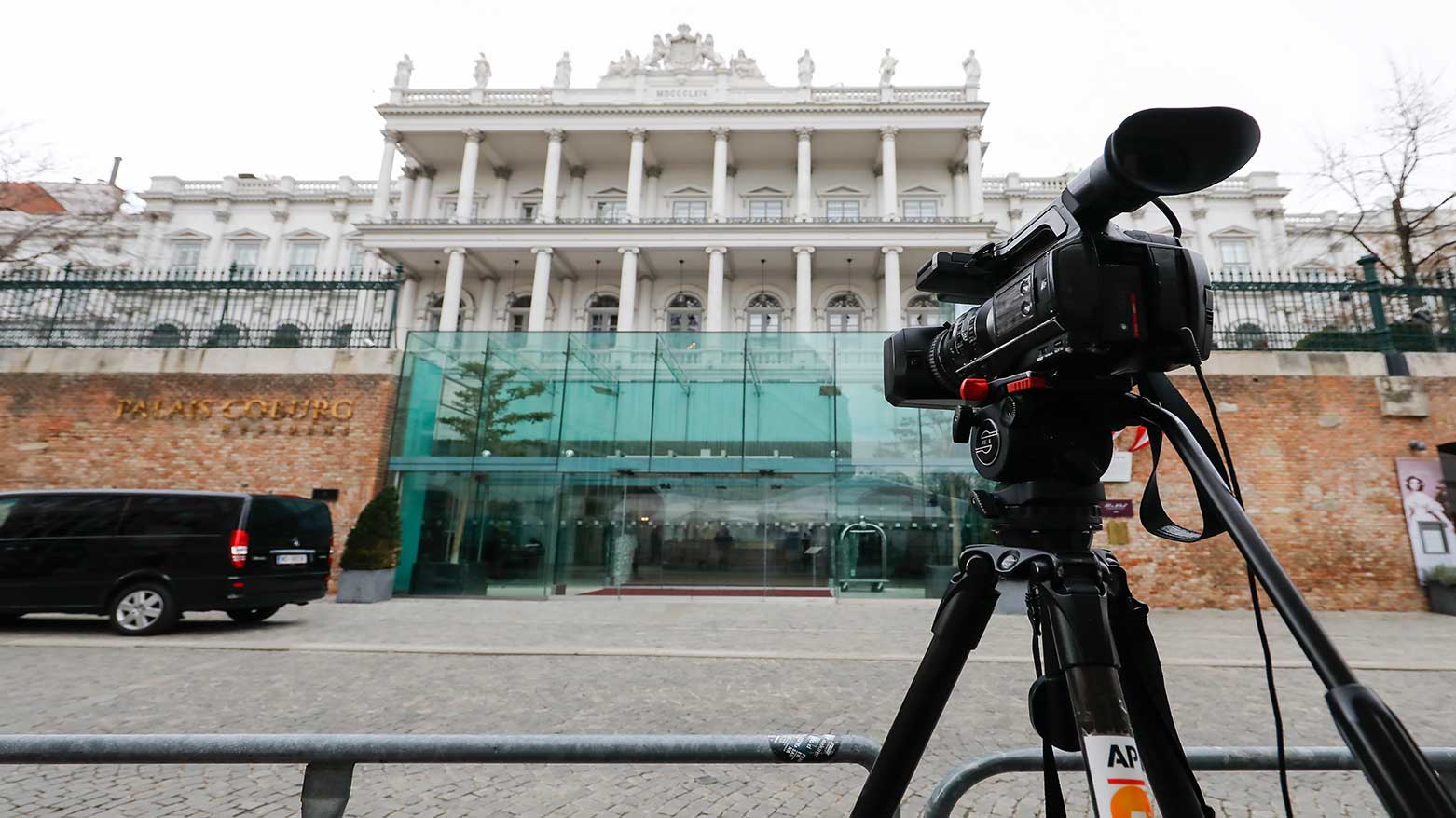Iran Urges Reciprocal Response from Europe After Signing New Nuclear Cooperation Deal
Tehran says its renewed cooperation with the IAEA shows goodwill, urging Britain, France, and Germany to match diplomacy as UN sanctions loom.

ERBIL (Kurdistan24) — Iran on Wednesday called on European powers to respond positively after Tehran signed a new cooperation agreement with the UN’s nuclear watchdog, the International Atomic Energy Agency (IAEA), in a move it described as a demonstration of its commitment to diplomacy.
Foreign ministry spokesman Esmaeil Baqaei said during his weekly press conference that Iran had shown “good faith” by re-engaging with the IAEA and expected reciprocal steps from Britain, France, and Germany, who last week triggered a UN sanctions snapback mechanism.
“We have demonstrated that we are not averse to diplomacy and take every opportunity to safeguard the interests and benefits of the Iranian nation,” Baqaei said. “It is natural to expect that Iran’s positive approach and good-faith efforts will be met with similar and reciprocal action from the European parties.”
The comments came as Foreign Minister Abbas Araghchi prepared to hold telephone talks with his British, French, and German counterparts on Wednesday.
In a related development, on Tuesday, Iran, together with China, Russia, Venezuela, Nicaragua, and Belarus, submitted a draft resolution to the International Atomic Energy Agency (IAEA) General Conference.
The resolution, titled “Prohibition of all forms of attack and threats of attack against nuclear sites and facilities under IAEA safeguards,” aims to safeguard peaceful nuclear facilities from external threats.
Esmaeil Baqaei, Head of the Center for Public Diplomacy and Spokesperson at Iran's Ministry of Foreign Affairs, announced the submission on his official X account on Tuesday.
He emphasized that the draft reaffirms the inalienable right of all countries to develop nuclear energy for peaceful purposes and their entitlement to effective guarantees against any attack or threat of attack.
Last week, Tehran struck a new framework of cooperation with the IAEA, days after the three European powers activated the “snapback” mechanism under the 2015 nuclear deal — formally known as the Joint Comprehensive Plan of Action (JCPOA) — citing what they called “significant” Iranian non-compliance. Unless progress is made, the suspended UN sanctions are set to be reinstated next month.
The deal had been largely frozen since June, when Iran halted cooperation with the IAEA following Israeli and U.S. strikes on its nuclear facilities.
A Fragile Nuclear Accord Under Strain
The 2015 nuclear deal, negotiated under then-U.S. President Barack Obama, granted Iran relief from international sanctions in return for curbs on its uranium enrichment and nuclear activities.
The JCPOA was hailed at the time as a landmark in non-proliferation diplomacy, backed by the United States, the European Union, Russia, and China.
However, the agreement began to unravel in 2018 when then-President Donald Trump unilaterally withdrew Washington from the deal and reimposed sweeping sanctions on Iran under a “maximum pressure” campaign.
In response, Tehran gradually scaled back its commitments, enriching uranium beyond the limits set by the deal and restricting access to IAEA inspectors.
Attempts to revive the JCPOA have repeatedly faltered. Negotiations in Vienna from 2021 to 2022 brought the parties close to an agreement, but disputes over guarantees, the scope of sanctions relief, and Iran’s regional activities prevented a breakthrough.
The European decision to trigger the snapback mechanism marks one of the most serious challenges yet to the future of the accord. If implemented, it would restore a broad array of UN sanctions lifted under the JCPOA, including restrictions on arms sales and financial transactions, potentially deepening Iran’s economic isolation.
Meanwhile, Iran’s nuclear advances have raised alarm. The IAEA has repeatedly warned that Tehran is enriching uranium to levels approaching weapons-grade, though Iranian officials insist their program is peaceful.
Israel has stepped up covert operations and precision airstrikes against Iranian nuclear and military facilities, portraying them as necessary defensive measures to protect its citizens and uphold the security interests of Western allies against Tehran’s nuclear ambitions.
The crisis also plays out against a shifting regional landscape. Gulf Arab states such as Saudi Arabia and the United Arab Emirates, once deeply opposed to the JCPOA, have cautiously re-engaged with Tehran following years of hostility. However, they remain wary of Iran’s expanding missile and drone capabilities.
For European powers, the dilemma lies in balancing pressure on Iran to return to compliance with preserving diplomatic channels to avoid a full collapse of the nuclear deal.
For Tehran, the new agreement with the IAEA is being presented as proof of its willingness to engage — but whether this will be enough to avert the return of UN sanctions remains uncertain.